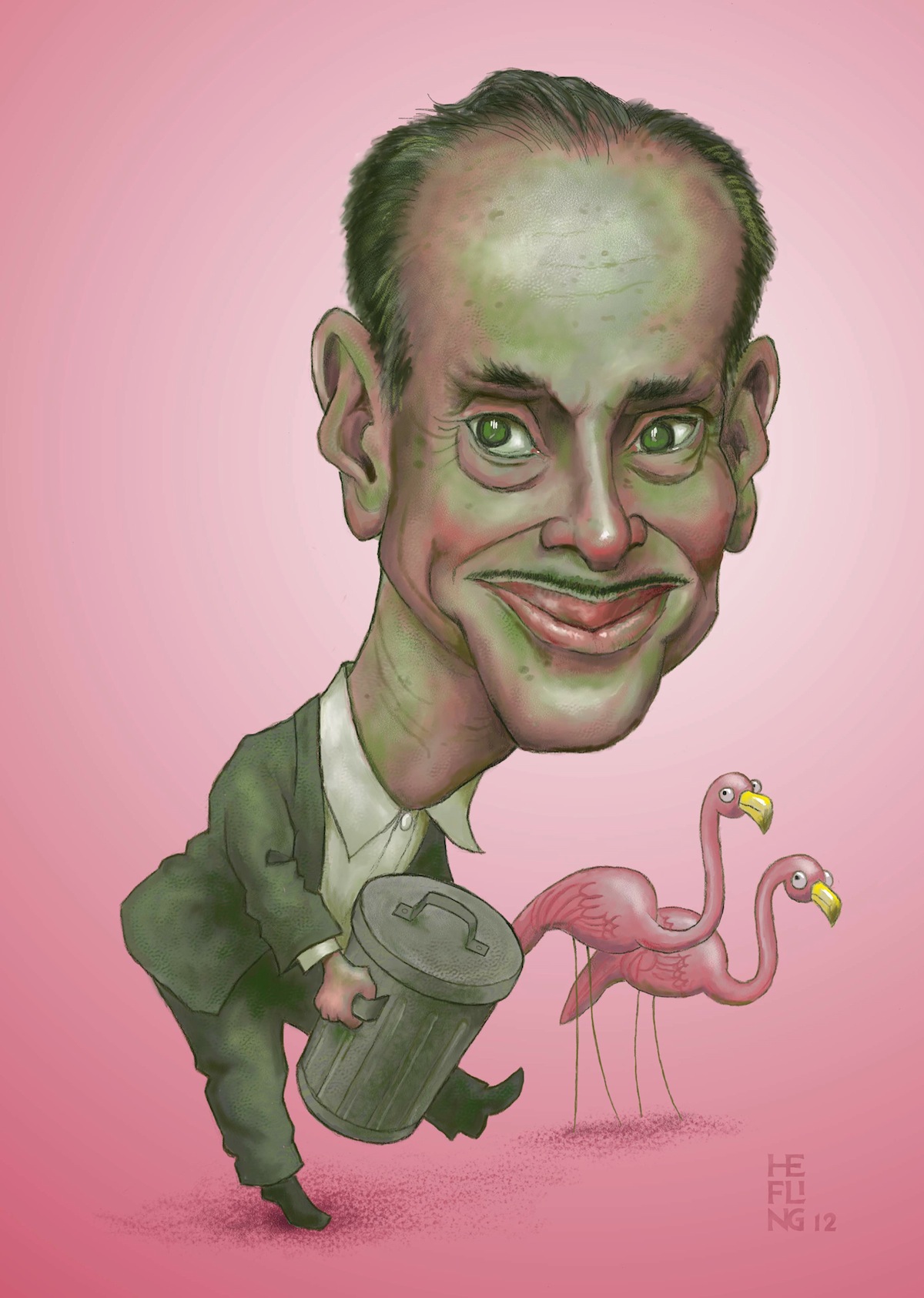 John Waters: Interviews
John Waters: Interviews
Edited by James Egan
University Press of Mississippi
249 pages, $65.
IF ANYONE, anywhere, doubted that John Waters was a great talker, this new anthology of interviews will put these doubts to rest. In John Waters: Interviews, editor James Egan has done an admirable job of collecting interviews that span the length of the filmmaker’s delightfully otherworldly career.
The interviews are arranged chronologically starting when Waters was eighteen.
From there, we get interviews that are usually based on promotional campaigns for film releases. Fans will appreciate the notoriety of some of those assigned to interview Waters, including Fran Lebowitz, J. T. Leroy (yes, even the faux author got a go-round), Todd Solondz, and Dennis Cooper, for articles that ran from 1969 to 2010. As someone who has sat down with Waters on a number of occasions, I can say he is what journalists refer to a generous interview. He gives great quote—in fact, it’s difficult to imagine him saying much that would be less than scintillating.
Waters, of course, made three of the most daringly transgressive—not to mention queerest—films that American independent cinema of the 70’s had to offer: Pink Flamingos (1972), starring the 300-pound drag performer Divine vying for the claim of “the filthiest person alive”; Female  Trouble (1974), in which the same star played both a female role and a male one, allowing him to rape herself onscreen; and Desperate Living (1978), a film about a lesbian uprising in an oppressive town populated by criminals, which also appears to be a meditation on Foucault’s theories of politics and power. In a telling 1982 interview with Scott MacDonald, Waters discusses his early filmgoing experiences, which helped him to make sense of his own work. He repeatedly went to screenings of The Wizard of Oz: “I always rooted for the witch; I used to identify with the witch. I always liked the villains in movies; they were the only ones I was interested in. … I used to run to see the films that they told us in Catholic school we’d go to hell if we saw.”
Trouble (1974), in which the same star played both a female role and a male one, allowing him to rape herself onscreen; and Desperate Living (1978), a film about a lesbian uprising in an oppressive town populated by criminals, which also appears to be a meditation on Foucault’s theories of politics and power. In a telling 1982 interview with Scott MacDonald, Waters discusses his early filmgoing experiences, which helped him to make sense of his own work. He repeatedly went to screenings of The Wizard of Oz: “I always rooted for the witch; I used to identify with the witch. I always liked the villains in movies; they were the only ones I was interested in. … I used to run to see the films that they told us in Catholic school we’d go to hell if we saw.”
The progression of interviews documents the shifts in Waters’ career. He went from the underground’s “Pope of Trash” to far more mainstream success, in particular with entries like Hairspray (1982), Cry-Baby (1990, with Johnny Depp), and Serial Mom (1994, with Kathleen Turner). As the independent film scene began to collapse, he had more difficulty finding financial backing for his film projects. But that didn’t slow him down. Instead, Waters began to create art through photography and collage, work that’s discussed in detail with filmmaker Todd Solondz.
At some point Waters became better known for being John Waters the celebrity and talk-show guest than for his trailblazing films. Dennis Cooper hints at this during his interview, suggesting that Waters’ celebrity and fame have meant that his filmmaking often doesn’t “get the intricate attention it deserves.” Waters disagrees: “I have done what I set out to do in my life, yes, and I feel I have been adequately rewarded.” But Cooper didn’t mean his question disdainfully. Indeed, when I ask my twenty-something students who John Waters is, they usually respond that he’s the guy who voiced that famous episode of The Simpsons. I delight in showing them one of the aforementioned Waters features, which have lost none of their subversive power. Invariably, one or more students have to leave the room in horror as the film unreels.
But Waters’ achievements also lead to this collection’s primary shortcoming. Many of the interviewers seem to be so in awe of him that asking anything resembling a challenging query is out of the question. In his most recent book, Role Models, Waters’ longest chapter is dedicated to Manson Family member Leslie Van Houten. In this passage, Waters apologizes for using Manson-related imagery in his previous work and, in an amazing bit of unintentional irony, asks for the public’s forgiveness for Van Houten’s involvement in the Manson murders, pleading for her release from prison. Egan has the final interview in the book. I would have loved for him to probe a bit about Waters’ thinking on this issue, which seems to me a truly strange argument, at best.
But the legions of Waters freaks—and I count myself among them—will appreciate this book for what it is. It’s an enthralling collection of the words of one of the English-speaking world’s greatest professional talkers.
Matthew Hays teaches courses in film studies at Concordia University. A photo of Divine in Pink Flamingos graces the cover of his book, The View From Here: Conversations with Gay and Lesbian Filmmakers.






